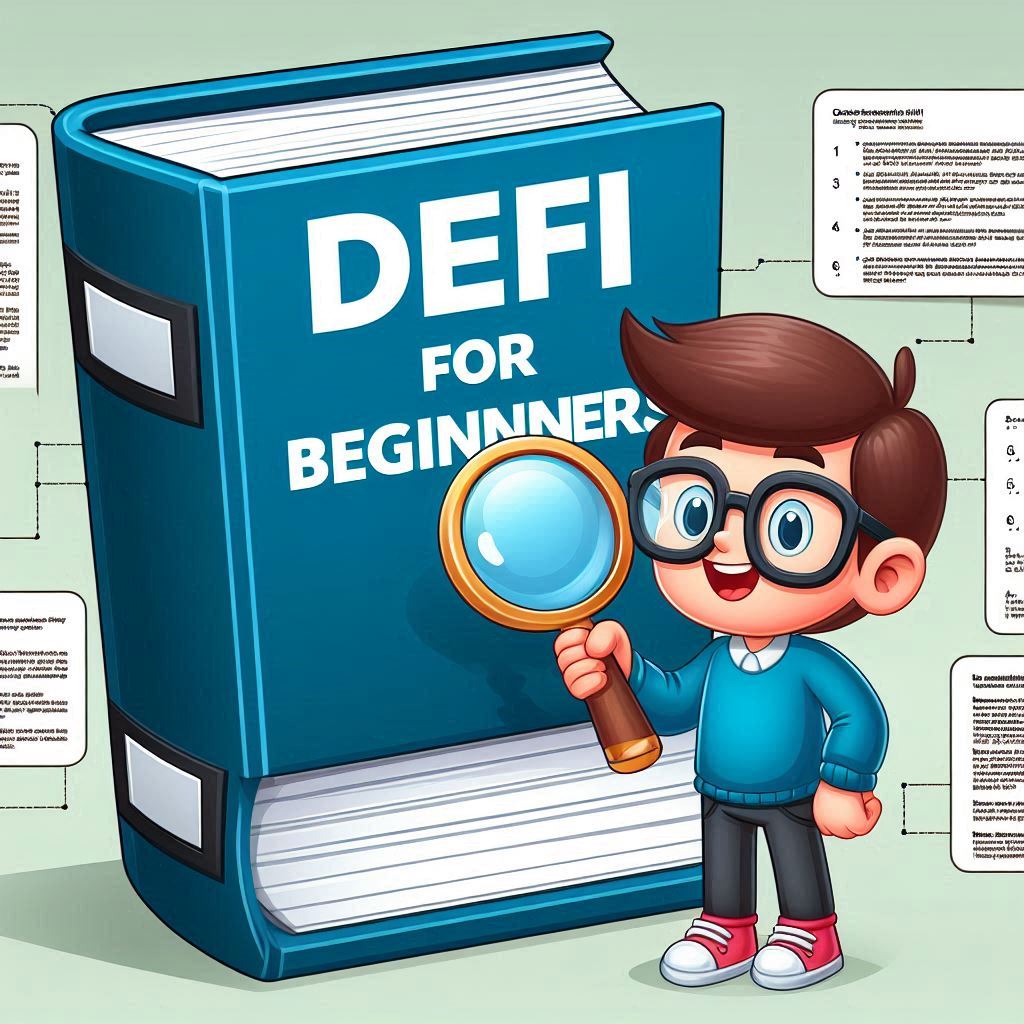How Fintech and AI Are Changing the Way We Bank and Invest in USA
While you might think fintech and AI are only relevant to tech-savvy individuals, they’re actually reshaping the way everyone banks and invests in the USA. These technologies are making financial transactions smoother, faster and more accessible, essentially changing the face of traditional banking.
From streamlining services to providing personalized investment advice, fintech and AI are making a significant impact. Curious about how these advances could affect your financial future? There’s much more to uncover.
Key Takeaways
- Fintech and AI are revolutionizing US banking and investment, offering personalized services and advanced fraud detection.
- Over 80% of Americans use fintech tools, demonstrating a preference for digital banking services.
- Fintech’s global expansion has boosted financial inclusion, providing services to 1.7 billion unbanked individuals worldwide.
- Regulatory technology solutions are reducing compliance costs for financial institutions, easing the transition to fintech adoption.
Understanding FinTech
To grasp the significance of FinTech, you need to understand how it leverages technology to enhance financial services, reshaping the landscape of banking and investment in the USA. FinTech, a blend of finance and technology, is innovating how you engage with banking and investment. It’s making your financial transactions more efficient, convenient, and affordable.
Central to this revolution is AI, which is driving automation and personalized services. You’ve probably used mobile banking apps, made transactions through digital wallets, or even received advice from robo-advisors. These are all products of FinTech, powered by AI algorithms. They’re helping you save time, reduce errors, and make informed decisions.
Blockchain technology is another major player, enhancing security and transparency in transactions and digital contracts. It’s reducing fraud and operational risks, giving you peace of mind in your financial dealings.
Moreover, the rise of FinTech is democratizing access to financial services. It’s not just about convenience. It’s about making banking and investing accessible to you, regardless of your location or financial status. This inclusive approach is transforming the financial landscape, setting new standards for the industry. So, next time you tap your phone to pay, remember, that’s FinTech at work.
FinTech’s Impact on Financial Sector

As you navigate through this digital revolution, it’s clear to see how deeply FinTech’s influence runs in the financial sector, transforming the way you handle your money and investments. Financial technology, driven by fintech companies, has disrupted traditional financial institutions, leading to a paradigm shift in the way financial services are delivered.
The advent of digital payments, for example, has streamlined transactions, making them faster and more efficient. The widespread adoption of these technologies is evident, with over 80% of Americans using digital apps for money management in 2022. This shift towards digital solutions is also seen in the digital payments segment, which is expected to have the largest user share of an estimated 5.62 billion global fintech users in 2023.
Furthermore, the integration of artificial intelligence (AI) into fintech has taken this disruption a notch higher. AI enhances the capability of fintech companies to provide personalized, data-driven services, hence offering a competitive edge over traditional financial institutions. The fintech market value in the USA, standing at approximately USD 194.1 billion, underscores this significant impact.
Growth Drivers for FinTech in Banking
Diving into the heart of fintech’s rapid growth in the banking sector, you’ll find a confluence of factors: a surge in US fintech investments, widespread smartphone adoption, supportive regulatory policies, strategic collaborations, and the undeniable lure of convenience and accessibility. In 2022 alone, over $22 billion flooded into the fintech sector, fueling innovation and reshaping the financial services industry.
Your mobile device is now the gateway to a world of innovative financial products. This is due to the remarkable smartphone adoption rates in the USA, leading to an insatiable demand for mobile-friendly banking and investment solutions.
Traditional banks aren’t standing idle, they’re strategically partnering with fintech startups to offer their customers a seamless digital banking experience. This synergy is producing a suite of advanced financial products that are transforming conventional banking norms.
The regulatory environment is also playing a pivotal role. Favorable policies and solid regulatory support are setting the stage for fintech to flourish, encouraging a new era of banking. The convenience and accessibility of fintech solutions are attracting a vast user base, making fintech a driving force in the banking industry’s evolution.
FinTech’s Influence on Banking Industry

With over 70% of Americans now preferring digital banking services, it’s clear that fintech’s influence is dramatically reshaping the banking industry. The fintech industry, powered by AI technology, is transforming financial interactions, making them more efficient and cost-effective. You’ll notice that traditional banks are responding to this shift, often partnering with fintech firms to enhance their digital offerings and improve the customer experience.
Fintech startups, having received over $30 billion in funding in 2022 alone, are pushing the envelope on innovation. Mobile payment apps like Venmo and CashApp are just the tip of the iceberg. These fintech solutions are revolutionizing how you conduct financial transactions, offering convenience at your fingertips.
Data is at the heart of this transformation. The integration of AI in fintech allows for advanced fraud detection and improved risk assessment, creating personalized financial services tailored to your needs. As fintech continues to leverage AI and big data, you can expect an even more intuitive and seamless digital banking experience. The future is here, and fintech is leading the way.
Effects of FinTech on Banks
While fintech’s influence is bringing about a digital revolution in the banking industry, it’s important to understand how it directly impacts traditional banks. The proliferation of fintech startups has intensified competition, with traditional banks feeling the heat. In fact, fintech’s rise has led to the closure of over 10,000 bank branches in the USA in the past decade.
Banks are now forced to rethink their strategies and invest heavily in digital transformation. In 2021, over $100 billion was spent by banks on technology to keep up with this rapidly evolving landscape. This has led to a significant increase in mobile banking usage among bank customers, with usage rising by 30%.
The pressure from fintech startups isn’t just challenging banks but is in fact reshaping them. It’s pushing banks to enhance their digital offerings and adapt to the new digital-centric customer expectations. However, it’s not all a one-sided competition. Banks are now actively seeking collaboration with fintechs, with over 75% of banks partnering with fintech firms to leverage their innovative technologies and provide better services. This illustrates how fintech isn’t only disrupting but also transforming traditional banking.
Collaboration Between FinTech and Banks

Looking forward to 2023, 82% of traditional financial institutions in the USA plan to up their game by partnering more with fintech companies. This signals a shift in the financial management landscape, with a focus on leveraging fintech innovation and agility.
Here’s how this collaboration could transform the banking scene:
- Enhanced Services: By using fintech solutions, banks can offer novel services like mobile payment apps and robo advisors.
- Speed and Efficiency: Fintech firms, renowned for their agility, can help banks streamline operations and deliver services faster.
- Trust and Compliance: Banks, on their part, bring regulatory compliance and customer trust to these partnerships, crucial elements that fintech startups might struggle with.
- Competitive Edge: Over 60% of U.S. banks believe that these partnerships are key to staying competitive in the rapid-paced financial landscape.
These partnerships represent a unique blend of innovation, technology, and tradition. By working together, banks and fintech firms can leverage each other’s strengths to create an optimized, customer-centric financial ecosystem. This is the future of banking – a dynamic blend of tradition and innovation.
FinTech’s Shift in Traditional Banking

As fintech continues to permeate the financial landscape, traditional banking in the USA is experiencing a seismic shift. The fintech changing is transforming the way you manage your financial transactions, challenging the traditional banking systems that have been in place for decades.
Over 11,000 fintech startups are altering the financial transactions landscape. The adoption of fintech tools by more than 80% of Americans signals a clear shift in banking preferences. Mobile payment apps and digital banking services are now commonplace, pushing traditional banking into a digital age.
The value fintech brings to the table is undeniable, with a whopping $194.1 billion market value. This isn’t just a trend, it’s the future – a future where online banking and financial transactions aren’t just convenient but also seamless.
However, with this shift comes the need for robust data security. As more and more of your financial activities move online, ensuring the security of your personal and financial information becomes paramount. Fintech isn’t just changing how you bank, it’s also raising the bar for data security in the financial sector. This is fintech’s shift in traditional banking – a shift towards innovation, efficiency, and security.
FinTech’s Potential Risk to Traditional Banking

In the face of fintech’s rapid growth, traditional banks find themselves at risk of losing market share and customer loyalty due to the innovative, tech-driven solutions offered by these agile startups. As you navigate this digital transformation, understanding the potential risks to your traditional business models is key.
- Customer Relationships: Fintech companies are reshaping the way financial interactions occur, providing personalized and efficient services. This threatens the traditional relationships banks have nurtured over the years.
- Market Share: With their ability to offer innovative financial services at lower costs, fintech startups are swiftly attracting customers, impacting your market share.
- Traditional Business Models: The disruption fintech brings challenges the viability of traditional banking models. The old ways of doing business are under threat.
- Adaptation and Innovation: The slower pace of innovation in traditional banking is a disadvantage in this tech-driven era. Without a strategic shift, you could lose relevance.
In this era of rapid technological advancement, it’s imperative that traditional banks adapt and innovate to remain competitive. The risk of fintech isn’t just about losing market share, it’s about survival in a digital age.
Transformation of Financial Services by FinTech

While traditional banks grapple with the risks fintech presents, it’s worth noting how these tech-driven startups are transforming financial services across the board. Fintech innovation is challenging the status quo, offering more efficient and cost-effective solutions that are reshaping how you interact with money.
With over 11,000 fintech startups in the USA, the industry is buzzing with potential. An impressive $23 billion was invested in just the first half of 2023, reflecting the faith in its growth and potential.
But what does this mean for you? Well, it’s all about financial inclusion. Services like digital payments, once the domain of traditional financial institutions, are now accessible to everyone, everywhere. These innovations, coupled with the advent of technology and cryptocurrencies, are fueling a revolution in financial services.
The table below encapsulates the transformation:
| Fintech Innovation | Traditional Financial Institutions | Impact |
|---|---|---|
| Digital Payments | Banks | Enhanced Accessibility |
| Cryptocurrencies | Investment Firms | Increased Investment Options |
| Mobile Apps | Credit Unions | Improved User Experience |
| Robo Advisors | Financial Advisors | Democratized Investment Advice |
| Blockchain | Centralized Systems | Greater Transparency |
In a nutshell, fintech is not just changing the banking landscape – it’s reinventing it.
AI’s Role in Changing Banking

You’re witnessing a revolution in the banking industry, thanks to AI’s impressive capability to personalize customer experiences through data analysis and predictive insights. It’s not just about streamlining banking operations; AI is fundamentally changing how we bank and invest.
- AI and Customer Service: AI-powered chatbots are transforming customer service in banks. They’re providing instant support and guidance, answering queries, and even assisting in transactions, any time you need.
- AI in Banking Operations: From automating routine tasks to enhancing risk management processes, AI is boosting efficiency across banking operations. It’s also playing a vital role in improving fraud detection.
- AI and Investment Strategies: AI is reshaping the way we invest. By analyzing market trends, predicting outcomes, and optimizing portfolios, AI algorithms are enabling smarter, more informed investment strategies.
- AI and Efficiency: The integration of AI isn’t just reducing costs; it’s increasing efficiency in the financial sector. By streamlining processes and making them more efficient, AI is driving the digital revolution in banking.
Fintech’s Impact on Digital Payments

Just as AI is reshaping banking and investing, fintech is dramatically changing the landscape of digital payments. In 2020, digital payments in the USA grew by 17%, totaling an impressive $4.2 trillion in transactions. It’s clear that you’re no longer bound by traditional methods; fintech allows you to bypass the constraints of physical cash and checks.
Mobile wallet usage is on the rise, with a 29% surge in the USA alone, accounting for 92 million users in 2021. Similarly, contactless payment adoption soared by 150% in 2020. You’re now able to pay with just a tap, making transactions quicker and more convenient.
Peer-to-peer payment apps like Venmo and Zelle are also gaining popularity, processing over $300 billion in transactions in the USA in 2021. These apps provide an easy way for you to split bills, send money to friends, or simply manage your finances.
The USA also saw a 42% rise in QR code payment usage. This shows a shift in consumer preferences, as QR codes provide a simple, secure, and contactless way to pay. Clearly, fintech’s impact on digital payments is profound and transformative.
The Global Fintech Ecosystem

Diving into the global fintech ecosystem, it’s evident that the USA stands out as a powerhouse of innovation, with a multitude of startups and established firms pumping billions into this sector to deliver a diverse array of services and products, all aimed at transforming traditional banking and investment practices.
The U.S. isn’t only leading the charge in this digital revolution but also shaping the future of global financial markets. Here’s how:
- Fintech platforms: The U.S. is home to a diverse range of fintech platforms, offering everything from mobile payment apps to robo advisors, making financial transactions more convenient than ever.
- Investment platforms: These platforms are democratizing investment by making it accessible to anyone with an internet connection, breaking down barriers that once existed in the financial world.
- Financial markets: The advent of fintech has ushered in a new era of transparency and efficiency in financial markets, with real-time data and analytics at the fingertips of investors.
- Cryptocurrency exchanges: The U.S. is a hub for cryptocurrency exchanges, reflecting the country’s openness to innovative and disruptive financial technologies.
In essence, the U.S. is helping redefine the global fintech ecosystem.
Frequently Asked Questions
How Fintech Is Changing Banking?
Fintech is reshaping your banking experience. It’s making transactions quicker and more convenient with mobile apps, and even cutting costs with fewer physical banks.
Peer-to-peer platforms are changing how you borrow and lend money. Robo-advisors are simplifying investment, making it accessible to everyone.
It’s not just about change, it’s about enhancing your financial interactions, making them efficient and user-friendly. So, you’re not just banking, you’re part of a financial revolution.
How Does Fintech Affect Investment Banking?
Fintech’s impact on investment banking is profound.
You’re seeing automation streamline processes, cutting manual work and boosting efficiency.
AI algorithms analyze data, offering insights for smarter investment decisions and better risk management.
Personalized investment options and advice tailored to your preferences are now common, thanks to fintech.
It’s enhancing transactions, market monitoring, and customer experiences.
It’s democratizing investment access and diversifying portfolios for retail investors.
In essence, fintech is revolutionizing investment banking.
Will AI Change Investment Banking?
Absolutely, AI will change investment banking. It’s already introducing data-driven decision-making and risk assessments. AI algorithms are optimizing trading activities and enhancing investment strategies. With AI, you’ll experience improved efficiency, accuracy, and speed in your operations.
It’s a game-changer, driving innovation and enhancing performance. So, brace yourself for a revolutionary shift in investment banking thanks to AI.
How AI Will Change the Banking Industry?
AI’s transforming your banking industry experience. It’s making operations faster, cheaper, and more efficient. Imagine personalized services, enhanced fraud detection, and seamless transactions.
AI-powered chatbots are handling the majority of routine inquiries, reducing costs. It’s not just about cost-cutting; AI’s also creating new revenue streams.
With AI, you’re looking at a future where banking’s more about strategic advisory, less about transaction processing. It’s a game-changer, and you’re right in the middle of it.
Conclusion
Just as the Industrial Revolution transformed society, AI and fintech are reshaping financial services. You’re no longer confined to brick-and-mortar banks and time-consuming transactions. With the rise of fintech and AI, your banking and investing experience is becoming seamless, efficient, and personalized. It’s like having a Wall Street expert in your pocket.
As we continue to embrace this digital revolution, get ready to witness a profound transformation of your financial world.
Share this content:













1 comment